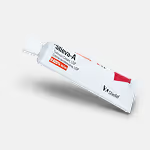Download the Felix App
Earn reward, visit our shop and get exclusive offers on the app
Download nowEarn reward, visit our shop and get exclusive offers on the app
Download nowPut your health first in 2026 with free visits on all categories, and $200 off longevity testing.
Download nowPut your health first in 2026 with free visits on all categories, and $200 off longevity testing.
Download now
AI-generated summaries may be inaccurate and do not constitute medical advice. Third-party AI tools are not under Felix's control, and your use of them is at your own risk.
Get tested for everything you need — and nothing you don’t. Monitor your heart, kidney, and liver health, vitamin and nutrient balance, inflammation and more to help you live longer and healthier. Felix uses the most only medically-backed biomarkers to assess your overall health and longevity. Our tests are ultra-focused to cut through the noise and give you clear, actionable insights.
We test for everything you need — and nothing you don’t to understand your longevity.
Metabolic Health
Kidney and Liver
Fatigue Hormones
Vitamins and Nutrients
Inflammation / Immune / Blood Cells
Medically reviewed by

References


























